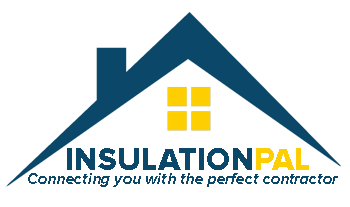Water Resistant Insulation: Definition and What it is
Insulation materials designed to resist water damage and maintain performance in moist conditions.
What is Water Resistant Insulation?
Water-resistant insulation maintains its thermal performance and structural integrity when exposed to moisture. These materials don't absorb water, resist mold and mildew growth, and continue insulating effectively even in damp conditions—critical for below-grade applications, coastal areas, and flood-prone regions.
Traditional fibrous insulation loses R-value dramatically when wet and can promote mold growth. Water-resistant insulation products use closed-cell foam structures or water-repellent materials that shed moisture rather than absorbing it. Closed-cell spray foam, XPS and EPS rigid boards, and mineral wool all offer varying degrees of water resistance. These materials are essential for basement walls, crawl spaces, exterior foundation insulation, and anywhere moisture exposure is likely.
Water-Resistant Insulation Materials
- Closed-Cell Spray Foam: Impermeable to water, adds structural strength, R-6 to R-7 per inch
- XPS Rigid Foam: Excellent moisture resistance, commonly used for foundations, R-5 per inch
- EPS Rigid Foam: Good moisture resistance, economical, won't wick water, R-3.6 to R-4.2 per inch
- Mineral Wool: Water-repellent, maintains R-value when wet, drains and dries quickly
Using Water-Resistant Insulation Effectively
Water-resistant insulation doesn't eliminate the need for proper moisture management—always address water infiltration, drainage, and vapor control separately. Use closed-cell spray foam for maximum moisture protection in flood zones and below-grade applications. XPS works well for exterior foundation insulation and under concrete slabs. EPS offers good performance at lower cost for basement walls. Mineral wool excels in above-grade applications where occasional moisture exposure occurs. Never rely on water-resistant insulation to compensate for poor drainage, foundation cracks, or inadequate vapor barriers.
Benefits of Water Resistant Insulation
- Maintains R-value in damp conditions
- Resists mold and mildew growth
- Long-lasting performance in challenging environments
- Essential for flood-prone and coastal areas
- Reduces risk of moisture-related structural damage
- Drains and dries quickly if wetted
Water Resistant Insulation Cost
Water-resistant insulation typically costs more than standard fiberglass but provides essential protection in moisture-prone areas.
- Closed-cell spray foam ($3-$7/sq ft, most expensive but best protection)
- XPS rigid foam ($0.50-$0.90/sq ft)
- EPS rigid foam ($0.35-$0.60/sq ft)
- Mineral wool ($1.00-$1.75/sq ft)
- Installation complexity and accessibility
- Additional moisture management systems (drainage, vapor barriers)
How InsulationPal Can Help You
InsulationPal connects you with licensed, experienced insulation contractors. Compare multiple quotes to get the best value for your project.
Free Quotes: Get multiple competitive quotes from pre-screened contractors.
Expert Matching: We match you with pros experienced in water resistant insulation.
Quality Assurance: Licensed, insured, and verified contractors.
Related Services and Resources
Explore all services we offer
Expert guides and tips on insulation
